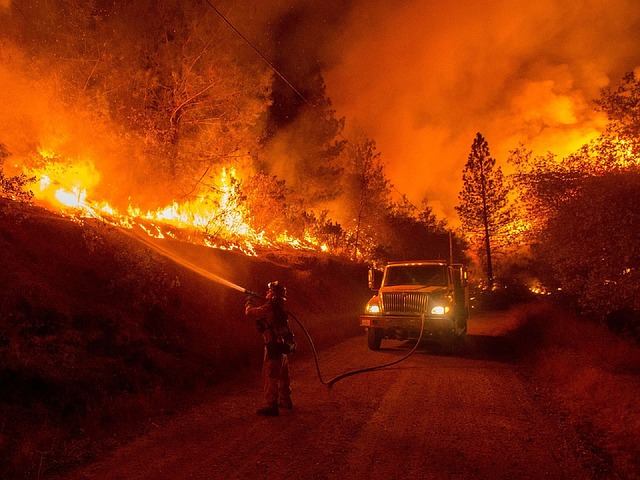As Southern California started to burn last week, many news articles debuted and made their way around social media declaring that Congress was trying to get rid of tax relief for victims of wildfires. In today’s news environment, it becomes difficult to know what is accurate and what is not — especially when you read it on social media. So, let’s take a look to see if there is any validity to this statement.
Tax Relief for Disasters
It is pretty standard practice for the IRS to provide tax relief for victims of natural disasters, including wildfires, hurricanes, massive storms, flooding, tornadoes, blizzards, and more. This normally includes the following:
- Extension to file most taxes, including income tax, payroll taxes for businesses, and estimated taxes, due during a selected period around the disaster occurrence
- Ability to claim disaster-related casualty losses and apply to the previous tax year or the current one (i.e. if you were a victim of the 2017 SoCal fires, you could apply the costs to your 2016 or 2017 tax returns)
- Deduct personal property losses not covered by insurance or other reimbursements
Already in 2017, these tax relief options were automatically provided to victims of several natural disasters, including:
- Hurricane Harvey
- Hurricane Irma
- Hurricane Maria
- California wildfires
- Severe storms, flooding, mudslides, and landslides in West Virgina
- Drought-stricken farmers
- Severe storms in Michigan
- Severe storms, flooding, and tornadoes in Missouri
- Severe storms and tornadoes in Arkansas
- Severe storms and tornadoes in Georgia
- Severe storms and tornadoes in Mississippi
This list does not include the latest breakout of wildfires in Southern California. Additionally, under the current tax policy, you could take this deduction for any casualties, disasters, or theft not reimbursed by insurance or other means. This means if your house burned down apart from any kind of natural disaster or your home was burgled, you could deduct the loss, which could make a big difference in your financial situation. For more information, read through IRS Publication 547.
The Future of This Tax Deduction
So, is this type of tax relief really in danger? The short answer: yes. Recently, Congress passed a tax reform bill in the House of Representatives and the Senate. Both bills proposed major sweeping changes to the American tax policy, including removing certain deductions for individuals. The bills contain slightly different components, but both include changes to the deductions for a disaster.
In the House of Representatives version of the 2017 Tax Reform Bill, they removed the ability of taxpayers to write off the losses of natural disasters, including hurricanes and wildfires. What about the Senate bill? Well, they kept some of it. You can only take the tax deduction for a disaster that was declared a federal disaster. This greatly reduces the number of people eligible to take the deduction.
Because both versions of the bill touch on eliminating or significantly reducing this deduction, there is a good chance that some reduction of this tax deduction will be included in the final version of the bill. The House and the Senate must reconcile the two bills in conference, and then the House and Senate will vote on the final bill. As long as there is a simple majority in both chambers, it goes to the President to get signed into law.
What Does This Mean?
If the Tax Reform Bill includes the elimination of this tax deduction, then future victims of natural disasters would have to pay taxes on any of the costs of rebuilding their home that was not part of insurance. The only way that they might be able to see relief is if it is declared a federal disaster or a special bill is passed by Congress.
Based on data from the IRS, in 2015, there was $1.6 billion in deductions for uninsured losses from natural disasters not declared federal disasters, and this did not include data from California. That goes to show you the major impact removing this deduction might have on American taxpayers.
Not Just California
Although the current news is looking closely at the wildfires raging in Southern California at the time of publication, removing this tax deduction does not just impact Southern California. In the future, disasters like Hurricane Sandy, Hurricane Harvey, Hurricane Maria, and any other major disasters, including tornadoes, severe storms, tropical storms, and flooding would not provide the individuals affected with any relief on their taxes. For some, this tax relief makes a huge difference in their ability to rebuild and get back on their feet after a disaster, so removing it could be the thing that causes their financial ruin.
For now, the tax policy remains the same. Those affected by natural disasters in 2017 can still take this deduction on their 2017 taxes. However, if the new tax reform policy passes, then things might change in the future.
In the meantime, if you struggle to pay your tax debt, contact Fidelity Tax Relief. Our tax professionals will review your situation and discuss the right tax relief option for you, which might include an Installment Agreement, Offer in Compromise, or Penalty Abatement. Call us at 877-372-2520 to learn more.


